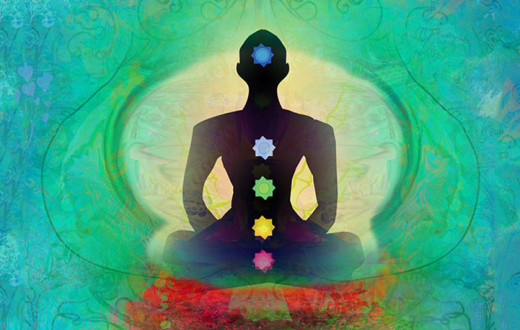
Q: Gurudev, what are the four pillars of Knowledge? How can they be useful for both inner and outer growth? Please explain the secret behind them.
Gurudev Sri Sri Ravi Shankar: The first pillar of knowledge is Discrimination, which is also called as Viveka in Sanskrit. Viveka means having the ability to differentiate between what is short-term and what is long-term; what is temporary and what is permanent; what is sustainable and what is perishable. One needs to know this differentiation or discrimination. The lack of this sense of discrimination causes misery.
You know, when kids in school or college get very low marks in some examination, they go and jump off the 10th or the 15th floor of a building and commit suicide. This is a lack of discrimination. Life is not based on just getting some grades, or marks. We get troubled and disturbed by small and trivial matters. For example, if a lady has had a quarrel with her mother-in-law, she goes away to her mother’s house and takes her kids along with her. Now, have there not been quarrels between her and her mother also in the past? Viveka means to understand what is permanent and what is impermanent.
Viveka is being able to identify what is changing and what is non-changing; what is short-term and what are long-term benefits in life.
All of us face small problems in life every day. Who does not face them in life? But if you consider the problem much larger than your life, then that is Aviveka (foolishness or lack of discrimination). Life is much larger than these problems. When you see your life in this perspective, then life will not appear to be a burden to you. Viveka is having this sense of discrimination between what is shashwat (eternal) and kshana-bhangur (impermanent or fleeting); what is truth and what is false (or unreal).
Our body is not permanent. It keeps changing all the time. Every cell in our body is changing all the time. Yet, there is something in us that is not changing at all. You recognize the change because of something that does not change. It is due to the non-changing aspect within you that you are able to recognize the changes. Viveka is being able to identify what is changing and what is non-changing; what is short-term and what are long-term benefits in life.
Many times you may be confused between short-term and long-term benefits, and you land up in a big mess, isn’t it so? When you are not able to differentiate between what is permanent and what is not, then you get easily troubled with trivial problems in life. Then you create problems for yourself and also make others uncomfortable around you. This tendency is Aviveka. Hence to kindle and awaken Viveka is the first pillar of knowledge.
Sometimes what appears is not what (really) IS. But we cling on to the appearance instead, and this is also lack of Viveka or discrimination. What appears is not always real. For example, you went to visit someone at their house. The lady of the house had kept some milk to boil on the stove, and hearing your arrival, she came to receive you. When she came to the door, she instantly remembered the boiling milk in the kitchen and rushed back, slamming the front door in a hurry. She rushed fearing the milk may get burnt. But you felt “Oh, what an insult! I came to visit her and she slammed the door in my face”. Now, what you felt was not true. She did not intentionally do this but you felt that she slammed the door and did not want to see you. This is a misconception or delusion in your mind. This is Aviveka.
The second pillar of knowledge is Vairagya. What does Vairagya mean? We tend to think that Vairagya means to feel “I do not want anything” (confusing Vairagya with detachment or renunciation). No, it is not so. Vairagya means to create a broader vision in life. Vairagya means to be free from feverishness in life. To experience relief and release from the feverishness of desires is Vairagya.Both Viveka and Vairagya are important.
Vairagya means to create a broader vision in life. Vairagya means to be free from feverishness in life. To experience relief and release from the feverishness of desires is Vairagya.
In life you need both, passion and dispassion. If you only have passion (desires), then you will get into depression. It is because not every passion or desire gets fulfilled right away. You need patience to pursue your passion, and this can happen only when there is dispassion also. If there is no dispassion, you cannot even sleep peacefully. To the degree you have dispassion in life, to that extent you get a sound sleep.
We acquire this tendency to possess and hold on to things very early on in life. But the sense of letting go should also come in life. Without letting go, you cannot rest. You will fall ill if you don't let go. When you sleep, drop everything and let go. You have to empty your mind before you sleep. If the mind gets stuck onto a particular thought then your sleep is ruined. This itself shows the lack of Vairagya. Having Vairagya will ensure that you get restful sound sleep; your face will have a smile and glow with happiness, and there will be enthusiasm in life. Someone who sits with a long face cannot be considered to have Vairagya.
We have misunderstood Vairagya so often. When we see someone sitting with a sad face, we think he is a Vairagi (one who is very dispassionate). No, it is not really so. Depression is counter-productive and is a sign of lack of dispassion. Depression indicates you have zero dispassion. The sign of dispassion is not dullness. The sign of dispassion is enthusiasm. You are peaceful, energetic and happy when you have dispassion. Unfortunately we have confused dispassion with depression. The so-called dispassionate people look so depressing. They seem to be battling some mental illness. They are so untidy, they do not put on clean clothes or comb their hair; they do not trim their nails. People tend to call all these as signs of Vairagya. Cleanliness & hygiene is not at all opposed to the principle of Dispassion.
Sri Adi Shankaracharya says “Kasya sukham na karoti Viraga?”
Meaning: What happiness can dispassion not bring to you? This is a question he asks. It means there is no joy that dispassion cannot bring you.
The third pillar has six aspects which are called the Shatt-Sampatti (which means the six kinds of wealth). What are they?
1. Kshama: kshama is the first wealth. What does it mean? It means having inner peace, being happy and content from within. We have to strive for peace of mind. When your mind is not at peace then you not able to listen or understand what someone else is saying. The intellect becomes dull and lost. To sharpen the intellect, you need to first calm the mind. If the mind is disturbed and in unrest, then the intellect cannot become sharp. The mind will go on getting entangled in small trivial problems. You need to learn to keep your mind calm and steady.
Kshama means to have that inner tranquillity of the mind.
The word Shanti (peace) comes from the word Kshama. This is very important. It is a wealth that you need to acquire.
Suppose you see someone breaking some rule. If you get angry and frustrated on seeing this, you are only making yourself miserable. What is the use of all this? Instead, keep the mind calm and steady, and educate the other person about it. If he or she still does not understand, what can you do about it? If they are not willing to understand and realize, then you need to ignore and move on.
Will that person improve or understand the mistake by you losing your peace of mind? You only ruin your peace of mind. Does it help you get the work done? No, it does not. You cannot improve someone else by getting angry at them.
Now, by that I do not mean that you do not get angry, or suppress your anger all the time. Sometimes when it is needed, you can show your anger. But your anger should last only for those few moments, after which you should come out of it, so that you are free and unbounded from it.
By letting your emotions rise high, you inhibit your intellect from perceiving things as they actually are. Kshama means to have that inner tranquillity of the mind. Peace (of mind) comes from Kshama. The word Shanti, (peace) comes from the word Kshama. This is very important. It is a wealth that you need to acquire.
2. Dama: The second kind of wealth is Dama. Dama means having a say over your own senses.
Many times, when people travel overnight in the luxury bus or airplane to attend to some important work in the morning, there is a movie being played during the journey. Now though you want to sleep, you still browse and watch the movie.
One moment you say to yourself, “Oh! I have already seen this movie before. It’s the same rubbish. What is there to watch again?” Yet the eyes say “No, I want to watch and see what is happening”. Your eyes do not agree with you. Your intellect says one thing, but your eyes disobey and follow something else.
Bulimia is another example. After eating, your stomach says, “I am full, I cannot take any more food”. But your tongue says, “Oh! I want more”. Lack of coherence between the senses, your mind and intellect is called as (absence of) Dama.
To have Dama means to have a perfect alignment and coordination between your mind and your senses. When your senses are in your control, you will not commit any crime.
Just walk into any prison and ask one of the inmates, "Why they are here".
They will tell you, “It all went out of my control”.
What is it that went out of control? Their own senses. Even lust for that matter. All the rape cases happen in this way. It is because the mind is not in control, the senses are in control. One is in the grip of the senses.
Similarly, the disease called Bulimia or over-eating is because of lack of Dama. Extreme anger is a sign of lack of Dama; obsession of any kind is a lack of Dama. You must have heard of obsessive compulsive disorders (OCD) many times – these too are related to a lack of Dama.
(Click Here to continue reading)













































